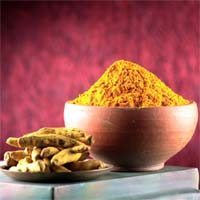Treating Mesothelioma with Curcumin: Success May Be Predictable
 Clinicians may be a step closer to being able to use curcumin to combat aggressive malignant pleural mesothelioma.
Clinicians may be a step closer to being able to use curcumin to combat aggressive malignant pleural mesothelioma.
Curcumin is the plant polyphenol that gives turmeric its yellow hue and spicy flavor. It has anti-inflammatory properties and has been shown to inhibit the growth of mesothelioma cells from animal models in the laboratory. Now, for the first time, researchers in Australia say they have successfully done the same thing with human cells taken from their own mesothelioma patients.
Researcher Sonja Klebe, an Associate Professor at Flinders Medical Centre in South Australia where the new research was conducted, says the breakthrough will allow doctors to predict whether or not a certain mesothelioma patient will benefit from treatment with curcumin.
The research at Flinders may also help explain why curcumin may sometimes work even better than traditional drugs to fight mesothelioma. Dr. Klebe says she and her research colleagues have discovered, for the first time, that mesothelioma cells may be capable of giving rise to their own blood vessels to feed growing tumors. Traditional mesothelioma medications only target blood vessel growth arising from surrounding stromal cells.
“This may explain the poor results of the standard drugs because they do not target this type of blood vessel formation,” explains Dr. Klebe. Unlike these drugs, curcumin does appear to impact this type of blood vessel formation, potentially slowing or even reversing the growth of mesothelioma tumors.
Curcumin can be taken in a pill form and has virtually no side effects. If the new research findings can be confirmed, Dr. Klebe says curcumin could be added to the standard treatment regimen for some mesothelioma patients, making it possible to reduce the amount of side-effect producing medications they have to take.
Mesothelioma is an extremely rare and hard-to-treat cancer affecting an estimated 2,500 American patients every year. It is directly liked to asbestos exposure.
Source:
Van Santen, J, “Spicy treatment for aggressive cancer”, Southern Health News, Flinders Medical Center Publication, June 2015





